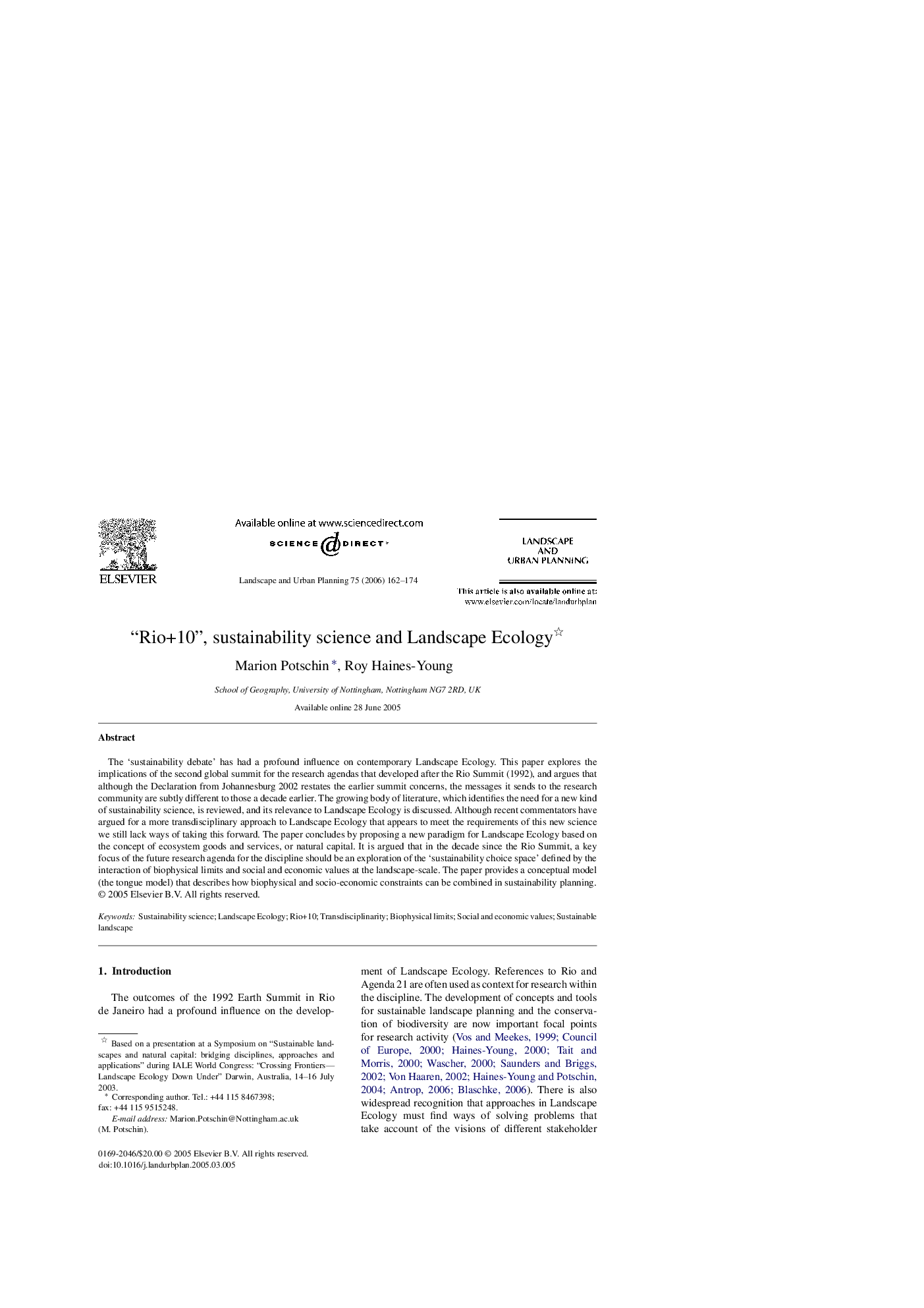| Article ID | Journal | Published Year | Pages | File Type |
|---|---|---|---|---|
| 1050391 | Landscape and Urban Planning | 2006 | 13 Pages |
The ‘sustainability debate’ has had a profound influence on contemporary Landscape Ecology. This paper explores the implications of the second global summit for the research agendas that developed after the Rio Summit (1992), and argues that although the Declaration from Johannesburg 2002 restates the earlier summit concerns, the messages it sends to the research community are subtly different to those a decade earlier. The growing body of literature, which identifies the need for a new kind of sustainability science, is reviewed, and its relevance to Landscape Ecology is discussed. Although recent commentators have argued for a more transdisciplinary approach to Landscape Ecology that appears to meet the requirements of this new science we still lack ways of taking this forward. The paper concludes by proposing a new paradigm for Landscape Ecology based on the concept of ecosystem goods and services, or natural capital. It is argued that in the decade since the Rio Summit, a key focus of the future research agenda for the discipline should be an exploration of the ‘sustainability choice space’ defined by the interaction of biophysical limits and social and economic values at the landscape-scale. The paper provides a conceptual model (the tongue model) that describes how biophysical and socio-economic constraints can be combined in sustainability planning.
